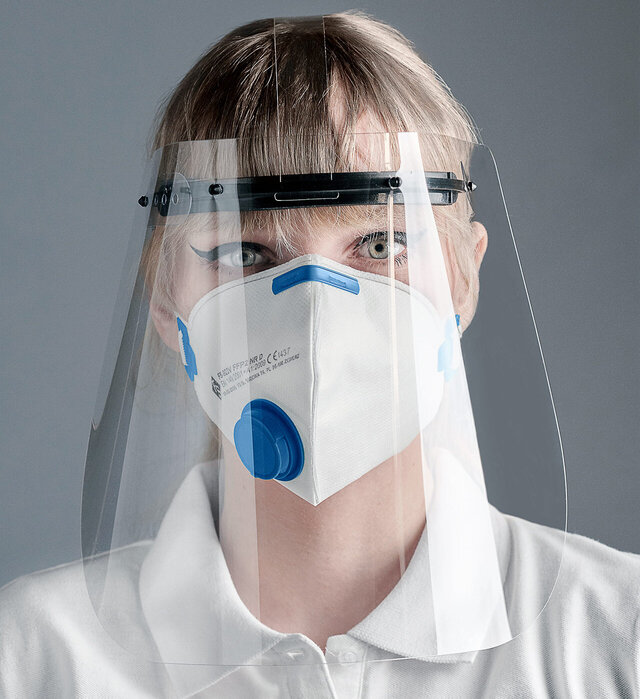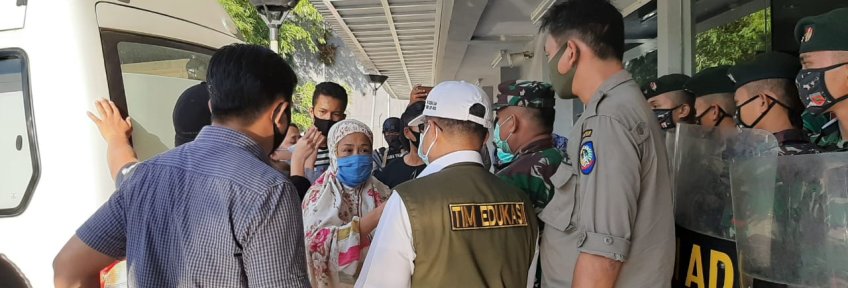Innovative response
Like many areas in Indonesia, South Sulawesi Province frequently encountered problems when families of deceased COVID-19 patients attempted to forcibly take the bodies home from hospitals. This occurred for a number of reasons, namely that Islamic belief says that burial procedures should be conducted within 24 hours of death, but also that many families do not understand that they can still contract the virus from a deceased patient’s body. Other families, meanwhile, do not believe that COVID-19 is real, so do not agree that bodies need to be buried according to health safety protocols.
The South Sulawesi COVID-19 Task Force decided to address this problem by establishing ‘COVID-19 Victim Family Education Teams’ to address the large number of refusals from families to carry out burials in line with COVID-19 health safety protocols. These families are generally overwhelmed with grief and want to mourn their family member in peace, leading to their strong rejection of safety protocols. The education teams work to both educate and calm the families so that they understand the seriousness of the pandemic and agree to follow the proper review and burial process.
When a death occurs as a result of COVID-19, the Task Force Call Centre is notified by the health facility. Teams are ready 24 hours a day, and following a phone call, they immediately prepare to move to the health facility that reported the death. They locate the families and work to calm them down, explaining the pandemic situation and the importance of following safety protocols. South Sulawesi’s education teams currently consist of 35 people divided into two shifts (day and night).
Specific issues addressed and anticipated impact
The aim of the solution is to ensure that the family of the deceased COVID-19 patient understands the seriousness of the pandemic and the importance of implementing proper review and burial practices to avoid further spread of the virus. The innovation also aims to reduce conflict - which has turned violent in the past - between local communities and health workers.
So far (as at October 2020), 330 cases have been handled by the education teams in South Sulawesi Province.
Organisations/institutions involved
The South Sulawesi COVID-19 Task Force is the main institution involved in the solution, with 35 members of the COVID-19 Victim Family Education Teams responsible for directly implementing the program. Health facilities such as hospitals are the teams’ primary partners, who report COVID-19 deaths to the provincial call centre and work with the education teams to identify families who need support.
Potential issues
Some families may continue to refuse to follow COVID-19 review and burial procedures even after receiving support from the education teams. However, the teams are willing to spend as much time as needed with the families of deceased COVID-19 patients and are always optimistic that the families will come to understand.


